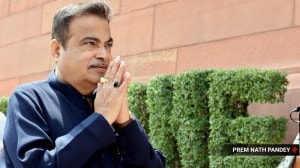Govt scraps Pre-Primary Act
August 8: Leading educational institutions will now be empowered to make their own rules of admission to pre-primary KG classes, since t...

August 8: Leading educational institutions will now be empowered to make their own rules of admission to pre-primary KG classes, since the Congress-led Democratic Front government today scrapped the controversial Pre-Primary Regulation of Admission Act, 1996.
8220;After great deliberations on the legislations and following representations made by educational institutions, particularly run by the minority organisations, we have decided to scrap the act. A fresh ordinance will be promulgated immediately to give effect to the cabinet decision,8221; Chief Minister Vilasrao Deshmukh said.
Deshmukh strongly justified the decision, saying, the government, particularly the erstwhile Sena-BJP government was unable to implement the proposal, there was no alternative before the government except to scrap the legislation. 8220;The erstwhile Sena-BJP government had enacted the law in 1996, but it stayed its own decision until further orders. We accepted the contention of the minority institutions that the act was against the constitutional provisions, therefore, it was decided to scrap it,8221; Deshmukh said.
Prime facie, Deshmukh said the act was against the protection granted to minority institutions. 8220;Under the constitution, the minority institutions have special protection. If we interfere in the institutions run by them, then it will be violative of the constitution,8221; Deshmukh said, adding there are several decisions of the Supreme Court on the stand taken by his government.
The Chief Minister said when a petition came up for hearing before the Bombay High Court, it had given three options. Firstly, implement the act as it was or amend it and if that was not possible, scrap it. 8220;We accepted the third option,8221; he said.
Besides the minority institutions, Deshmukh said, a large number of parents also called on him and the School Education Minister to press their demand for the scrapping of the anti-minority legislation.
When the Sena-BJP government came to power, it had declared that it will bring in a legislation to regulate admissions to pre-primary classes. Subsequently, it appointed a highlevel committee headed by former Vice-Chancellor Ram Joshi to advice the government on formulation of the new legislation. Accordingly, a comprehensive legislation was introduced in both the houses in 1996 and it was passed unanimously. The legislation, inter-alia banned interviews of the students as well as their parents. In addition, it provided that 80 per cent of the students admitted in the pre-primary classes should be from the local area.
However, minority institutions lodged a strong protest against the legislation, saying, the act was in blatant violation of the constitutions provisions, since under the constitution, minority institutions have right to administer the affairs of the educational institutions run by them.
Taking serious cognisance of the protest, the then Education Minister Sudhir Joshi stayed the operation of the order for a year. The stay was extended every year and the legislation was never implemented.
- 01
- 02
- 03
- 04
- 05






























